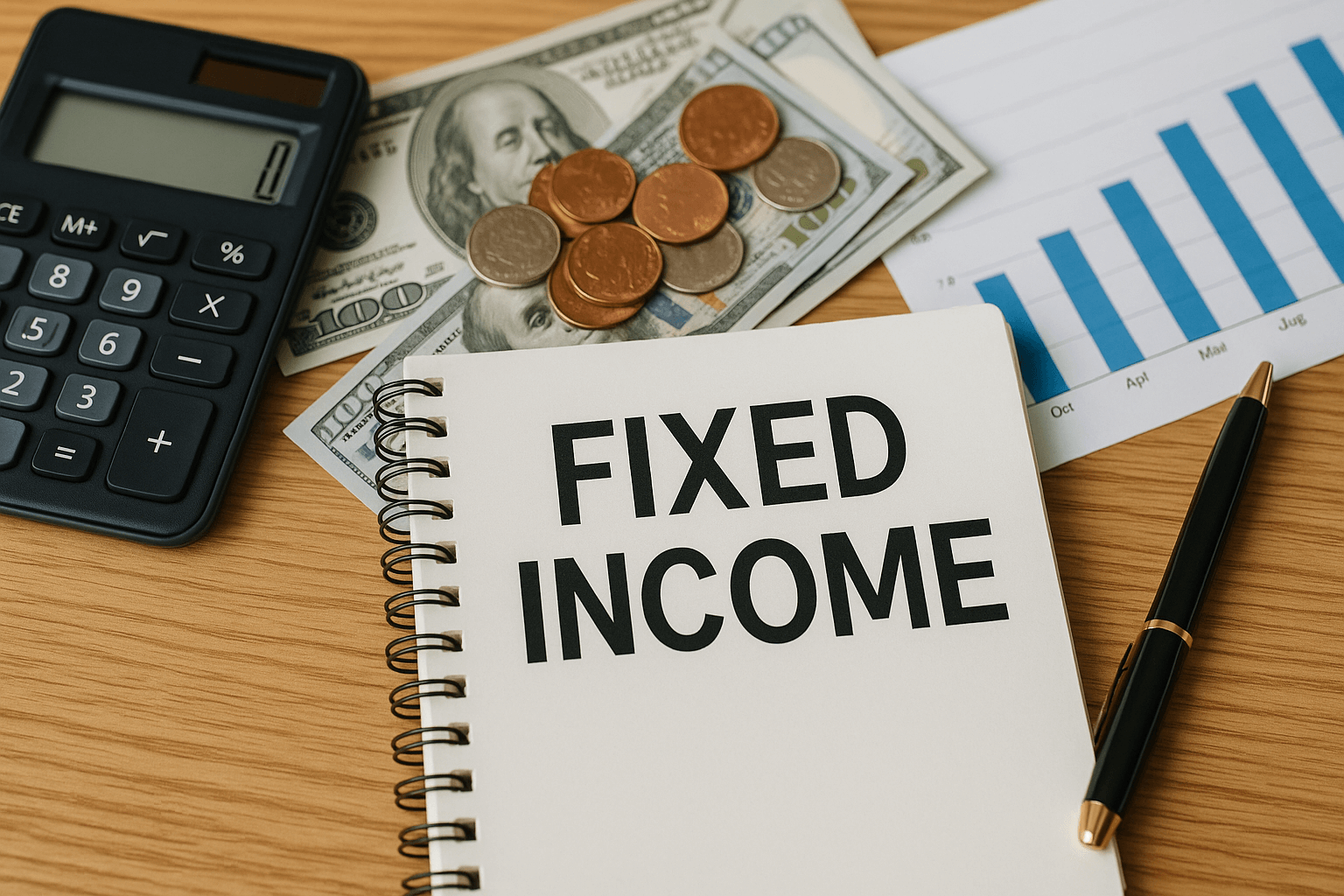Managing your money wisely involves understanding where it can grow safely and steadily. For beginners in personal finance, “fixed income” is a term that often appears in articles, videos, and conversations but what does it actually mean?
In this article, we’ll break down what fixed income is, how it works, and why it’s important to know about it even if you’re just starting your financial journey. No investment advice, just information you can use to feel more confident in your learning.
What Is Fixed Income?
Fixed income refers to a type of investment or financial instrument that provides regular, predictable payments. These payments usually come in the form of interest and are paid out on a schedule—monthly, quarterly, or annually.
Common examples include:
- Bonds (government and corporate)
- Certificates of Deposit (CDs)
- Treasury securities
- Some retirement accounts and annuities
Unlike stocks, which can be volatile and offer returns based on market performance, fixed income assets are known for stability and predictability.
How Does Fixed Income Actually Work?
The idea is simple: You lend money to an institution (like a government or a company), and in return, they pay you interest over time. At the end of the term (called the “maturity date”), they return the original amount you invested.
Here’s a basic example:
- You invest $1,000 in a bond with a 5% annual interest rate.
- Every year, you receive $50 in interest.
- After five years, you get your $1,000 back—plus a total of $250 in interest.
This setup makes fixed income an appealing option for those who want predictable returns or want to preserve their money without taking on too much risk.
Why Should You Know About Fixed Income?
Even if you’re not planning to invest right now, learning about fixed income gives you a better understanding of how money grows and how financial systems work. Here’s why it matters:
1. Helps You Plan Long-Term Goals
Fixed income instruments are often used to fund retirement plans, education savings, and emergency funds. Knowing how they work can help you plan smarter for long-term security.
2. Provides a Foundation for More Advanced Learning
Before diving into more complex financial topics like stocks, real estate, or entrepreneurship, understanding fixed income lays a solid foundation. It teaches you about interest rates, inflation, risk, and timing.
3. Promotes Safer Decision-Making
When you understand that not all financial products are about high risk and high reward, you become better equipped to avoid scams, spot misinformation, and ask the right questions when exploring financial services.
Common Types of Fixed Income Instruments
Let’s look at some popular fixed income tools you might come across in your learning journey:
Bonds
A bond is a loan from you (the investor) to a borrower (a government or corporation). They agree to pay you interest and repay the loan on a fixed date.
There are several types of bonds:
- Government Bonds – Issued by national governments; often low-risk.
- Municipal Bonds – Issued by cities or local governments.
- Corporate Bonds – Issued by companies; generally offer higher returns but may carry more risk.
Certificates of Deposit (CDs)
A CD is a savings product offered by banks that locks your money for a set term (like 6 months or 1 year). In return, you receive a guaranteed interest rate.
They’re typically insured by national deposit insurance programs, making them very low-risk.
Treasury Securities
In the U.S., Treasury Bills (T-Bills), Notes, and Bonds are backed by the federal government and are considered extremely safe. Other countries have similar versions (e.g., Tesouro Direto in Brazil).
What Are the Benefits of Fixed Income?
- Predictability: You know exactly how much you’ll earn.
- Stability: Less sensitive to market volatility than stocks.
- Capital Preservation: Great for keeping your money safe over time.
- Diversification: Adds balance to a broader financial strategy.
And the Limitations?
No financial product is perfect. Fixed income has its drawbacks:
- Lower Returns: Compared to stocks or real estate, the earnings are usually more modest.
- Inflation Risk: If inflation rises, fixed income might not keep up with the cost of living.
- Limited Liquidity: Some investments lock your money until maturity.
Understanding these limits helps you see where fixed income fits in the big picture.
Where Can You Learn More Safely?
Because fixed income is a widely-used financial concept, you can learn more from:
- Publicly available courses (like on Coursera, edX, or Khan Academy)
- Government websites (such as SEC.gov or local central bank portals)
- Books and financial literacy blogs
Stick to trusted, educational sources that don’t try to sell you anything.
Final Thoughts: Fixed Income as a Building Block
You don’t need to be a financial expert to understand fixed income—but knowing how it works can change how you think about money. It can give you peace of mind, more confidence, and a framework to ask smarter questions as you build your financial knowledge.
Whether you’re a student, a freelancer, or just someone tired of living paycheck to paycheck, exploring fixed income can be a safe and simple starting point.
Stay curious and keep learning your future self will thank you.
